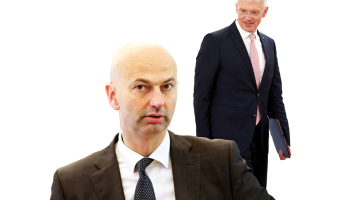
Foto: Gediminas Savickis, F64
The harder they come, the harder they fall
Paul Krugman, Nobel Prize winner in economics 2008, when in need of the antithesis of a role model for economic policy often chooses Latvia. He has been very critical of the insistence of the authorities to maintain the fixed exchange rate when the country faces recession and double-digit unemployment and of course he has a point. Prof. Krugman has similar posts comparing Iceland with Ireland , the latter via its participation in the eurozone being unable to undertake an external devaluation.
For me it is still not clear that the strategy of internal devaluation is better than an external one although I (still, especially if the authorities support it with proper 2011 and 2012 budgets) support the former. His Riga Mortis piece was fun but the post from 17th December 2010 lacks balance, I think, and certainly deserves some comment. Not to defend Latvia ? the reckless boom-time ultra-procyclical fiscal policy in particular is very much the culprit of the current woes as I have argued previously and its effects rightly produces comments and interest from Prof. Krugman and many others.














